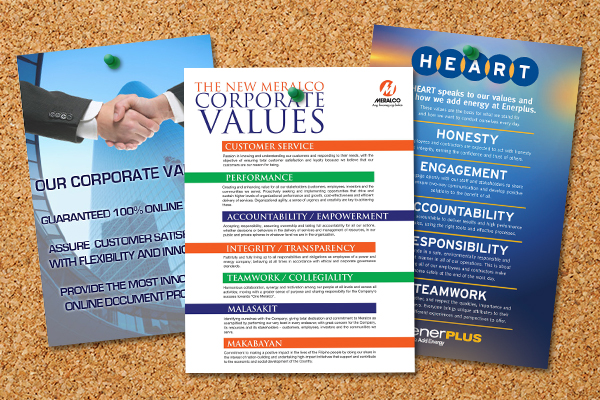
Courage and a Cup of Margin: A Case for Remarkability
Your Proprietary Way is the unique way you provide your services to clients — here’s why you need one.

You've probably read lots of articles about the importance of core values and values-driven companies. Best-selling business writers like Jim Collins and Tom Peters frequently espouse the importance of core values and highlight companies that leverage their core values to outperform the market.
Despite the credibility of authors like Collins and Peters, you’d be crazy not to be at least a bit skeptical about the importance of company values. There are too many platitudes posted on too many placards on too many walls. There are too many leaders paying too much lip service to values that do not inspire, engage, or motivate.
But, for those companies that have succeeded in creating powerful values that engage their employees, the benefits are nothing short of amazing.
Companies that effectively identify and promote their values have less employee turnover, higher customer retention and greater profitability than those that don’t. Do we have your attention now? Good, because you’re about to learn the first steps towards building a truly remarkable (and profitable) organization.
Unfortunately, most companies typically have values that are very nice, but they’re also stale, meaningless company jargon. They’re probably written in a physical or electronic document somewhere in your facility. It’s even possible that your values are on a poster, on a wall, or in some marketing materials. And, there they slowly die – fading into the background and certainly doing no one in your company any good at all.

The problem that I see with the majority of company values is that they’re structured in a way that sabotages their effectiveness. And without the right structure for core values, they’re practically meaningless and have little impact on a company. Here’s why:
Incorrectly structured values are not guiding the decision making and behaviors of your employees on a day-by-day basis. They are not exemplified by management and evangelized by leadership. And, while they are well intended in their formation, when your values live no place but on paper, there is a void between management and most of your people – your team’s perception is that this is another out-of-touch management wish list. And it’s a wasted opportunity to create the foundation for your company’s deep moat.
As a leader, you have an incredible opportunity to create and build a workplace that is an amazing environment - your people will have a fulfilling place to come each day that excites them and offers them growth.
And engaged employees translate into hard numbers that are quite astounding. In an ongoing multi-year study, Gallup has been measuring the impact of employee engagement. Their research includes over 25 million employees across geographies and industries.
In Gallup's study, business units that ranked in the top 25% of their organizations for employee engagement showed:
Amazing, right? And, a powerful reason to seriously consider what your core values are doing to create an engaged workforce and a thriving culture.
Unfortunately, your core values (and 99% of the other companies’ out there) lack many or all of the following key elements to be truly powerful:
Core values that are powerful enough to shape company culture and contribute to your bottom line will capture all 15 of these essential elements.

You may have a bit of a headache at this point. Fifteen is a big number, and you’d be crazy to think that it’s easy or painless to craft core values that capture each of these elements.
Fortunately, after working with many companies, we’ve developed a precise formula to help you create values that will do all of the things above, transforming your company into one where your employees live and breathe your core values. It will develop a culture in which members of your workforce are your company’s biggest advocates, positively reflecting your business in the myriad of ways they communicate and act every day, month, and year. We call them “Living, Breathing Values” or “LBVs,” and you’ll learn all about them in our next blog post: How to Create Remarkable Company Core Values, Part 2.
Want to learn more about how Kinesis helps companies craft powerful core values? Visit our website or give us a call at 503-922-2289 to set up a consultation.
Get insights like this straight to your inbox.